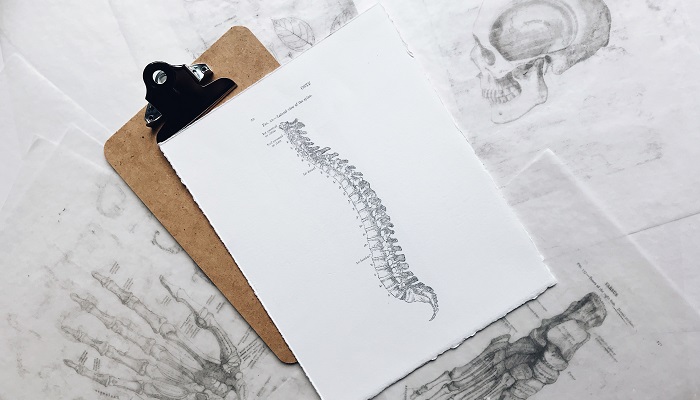Your spine is the backbone of your body, both literally and figuratively. When you experience spine problems, it can significantly impact your quality of life. Whether you’re dealing with chronic back pain, a herniated disc, or a more complex spinal condition, finding the right help is crucial.
In this comprehensive guide, we’ll explore the various aspects of managing spine problems and offer insights into making informed decisions about your health. From non-surgical approaches to orthopedic surgeries performed by expert orthopedic surgeons, we’ve got you covered.
Understanding Your Spine
To effectively address spine problems, it’s essential to understand the anatomy of your spine. Your spine consists of 33 vertebrae, which provide structural support and protect the spinal cord. Between these vertebrae are intervertebral discs that act as shock absorbers. Problems can arise when these discs degenerate, herniate, or compress nerves. By comprehending the basic structure of your spine, you can better appreciate the complexities of spine-related issues.
The Importance of Early Diagnosis
Early diagnosis is key to preventing spine problems from worsening. If you’re experiencing persistent back pain, numbness, tingling, or weakness in your limbs, consult a healthcare professional promptly. They can conduct a thorough examination, which may include imaging tests like X-rays, MRI, or CT scans, to pinpoint the root cause of your symptoms. Once diagnosed, you can explore suitable treatment options.
Non-Surgical Approaches
Not all spine problems require surgery. Many issues can be effectively managed through non-surgical treatments. These may include physical therapy, chiropractic care, pain management techniques, and lifestyle modifications. Physical therapy, for instance, can help strengthen the muscles supporting your spine and improve flexibility, reducing pain and enhancing mobility. Consult with a healthcare provider to determine which non-surgical approach suits your specific condition.
When Surgery is Necessary
In some cases, conservative treatments may not provide the relief needed, and surgery becomes a viable option. Also, orthopedic surgeons in Atlanta are renowned for their expertise in spine surgeries. Procedures such as spinal fusion, laminectomy, and discectomy can be performed to address various spine conditions. These surgeons are well-trained to assess the complexity of your condition and recommend the most appropriate surgical intervention if necessary.
Second Opinions Matter
When considering surgery or any major medical decision, seeking a second opinion is a wise choice. Different physicians may have varying approaches to treatment, and it’s essential to be well-informed before proceeding. Don’t hesitate to consult with multiple orthopedic surgeons to understand your options fully. This can provide you with peace of mind and confidence in your chosen treatment path.
Rehabilitation and Post-Surgery Care
Rehabilitation and post-surgery care are pivotal phases in the journey to recovery for individuals dealing with spine problems. After undergoing spine surgery, it’s essential to understand that the real work begins during the rehabilitation period. This phase typically involves working closely with a team of healthcare professionals, including physical therapists and sometimes occupational therapists, to regain strength, flexibility, and overall function. Tailored exercises and activities are prescribed to address specific needs, and it’s crucial for patients to diligently follow their rehabilitation plans. Consistency and patience are key, as progress can be gradual.
Adhering to post-surgery care instructions, which may include restrictions on certain activities, proper wound care, and pain management, is equally vital to minimize complications and maximize the chances of a successful outcome. The rehabilitation and post-surgery care period plays a pivotal role in helping individuals return to their daily lives with improved spine health and overall well-being.
Lifestyle Changes for Spinal Health
Regardless of whether you opt for surgery or non-surgical treatments, making lifestyle changes is fundamental to maintaining spinal health. This includes maintaining a healthy weight, adopting good posture, staying physically active with low-impact exercises, and avoiding habits like smoking that can hinder the healing process. These lifestyle adjustments contribute to the long-term well-being of your spine.
Emotional and Psychological Support

Emotional and psychological support plays a crucial role in the journey of individuals dealing with health challenges, including spine problems. Living with chronic pain, physical limitations, and the uncertainty of medical treatments can take a toll on one’s mental well-being. It’s essential to recognize that addressing the emotional aspect of a health condition is just as important as the physical treatment. Seeking support from therapists, counselors, or support groups can provide a safe space to express fears, frustrations, and anxieties.
Moreover, it can equip individuals with coping strategies, resilience, and a sense of belonging, ultimately contributing to a more holistic and balanced approach to healing. Emotional and psychological support not only complements medical treatments but also empowers individuals to navigate the emotional hurdles on the path to recovery and improved quality of life.
Long-Term Management
Long-term management is the linchpin of effectively dealing with spine problems and
maintaining your overall well-being. It’s a commitment to ongoing care and vigilance, ensuring that your spine remains healthy and functional in the years to come. Whether you’ve undergone surgery or pursued non-surgical treatments, the journey doesn’t end there. Regular follow-up appointments with your healthcare provider are essential to assess your progress, address any emerging issues, and fine-tune your treatment plan as needed. These appointments serve as checkpoints to ensure that you’re on the right track toward recovery.
Moreover, long-term management involves taking an active role in your health. This means adhering to the exercises and lifestyle changes recommended by your healthcare team. Consistent physical activity, maintaining a healthy weight, and practicing good posture become integral parts of your daily routine. Additionally, staying attuned to your body’s signals and promptly addressing any discomfort or pain is crucial. It’s a commitment to self-care that extends beyond the immediate post-treatment phase, emphasizing the importance of sustained efforts to preserve the gains made in your spine health.
Dealing with spine problems can be challenging, but with the right guidance and care, you can effectively manage your condition. Whether you choose non-surgical approaches or require the expertise of orthopedic surgeons, remember that your spine health is an investment in your overall well-being. Take the time to understand your condition, explore all available options, and prioritize self-care to ensure a brighter, pain-free future. Your spine deserves the best care possible, and by following this useful guide, you’re on the right path to finding the right help for your spine problems.



















